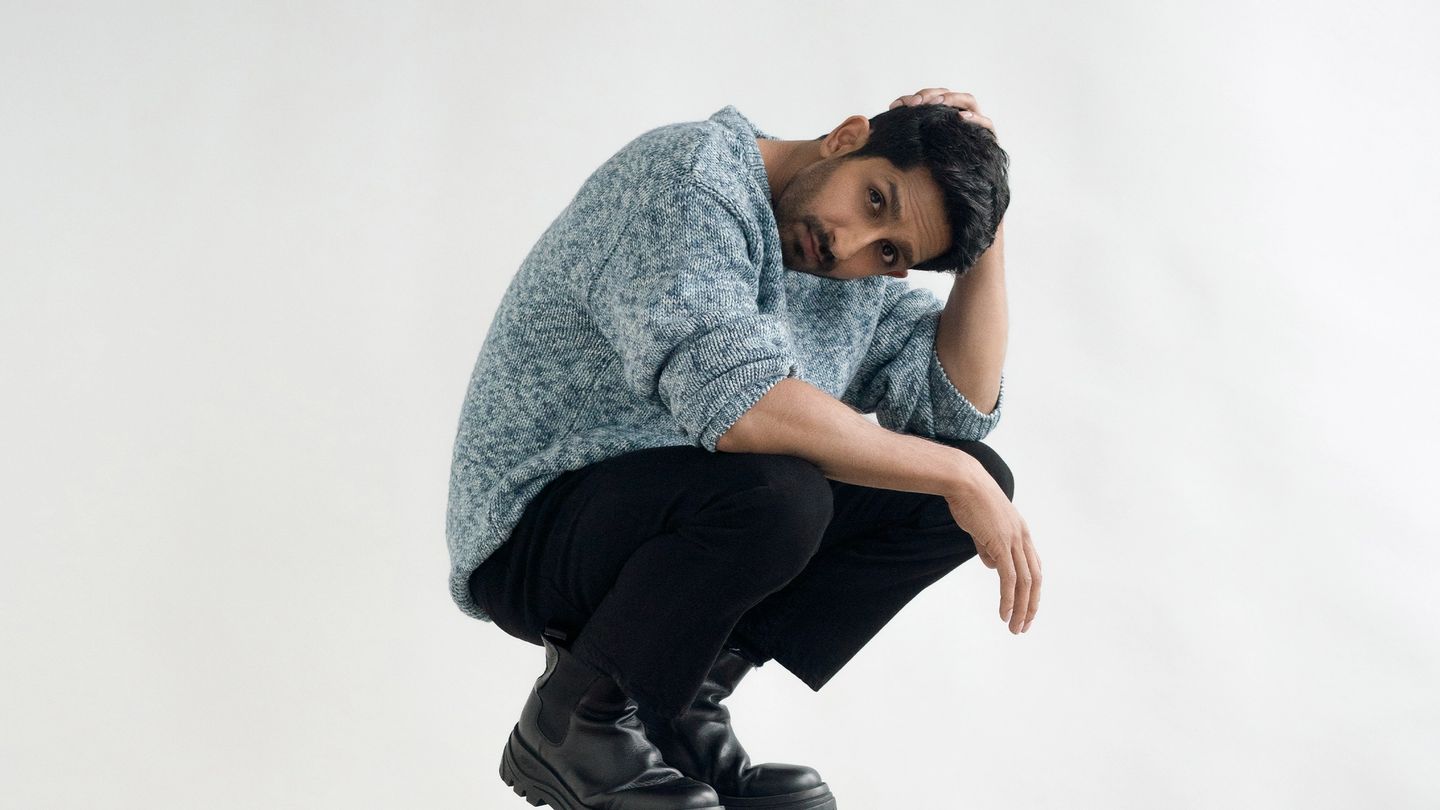

Industry's Sagar Radia: "Riz Ahmed is doing things that show other South Asians what is possible"
Sagar Radia speaks to the Gentleman's Journal about his roles in Industry and Unicorns, both of which are highlighting breaking boundaries in character representation
Words: Zak Maoui
In Season 3, Episode Four of Industry, titled "White Mischief", head trader Rishi, played by Sagar Radia, is the main protagonist. He’s a character in crisis His marriage is pretty much in tatters, with his sex life with his middle class, white wife at zero. He owes a lot of money. A lot of money. A flash of his credit-card debt in the unfathomable numbers is shocking enough, but he’s also running an illegal horse-betting scheme with his colleagues, and taking their money, as well as up the walls in debt to a loan shark.
It’s a deep and dark episode that for the first time fully explores the world of Rishi. Until this episode we’d been given glimmers of Rishi, the cocky frat boy of the financial district, but purely as a catalyst to keep other storylines moving. In this episode (and indeed likely future ones) he is the storyline. “When I signed onto the project I was on another show and this audition came in,” Harrow-born Radia explained via a phone call. “It said ‘Rishi - three episodes’ and I thought I’d do this and go back and do the other show I was filming, The Good Karma Hospital. I got to the read through and after that I got the contract and I was slated for the entire first season. It’s not a huge part, but he’s there to represent the dark side of banking. It was a functional role. A character in that world to represent what banking and finance can be like. Come the third season, Rishi was a major player.”
For 37-year-old Radia, Rishi is an essential part of HBO’s chronicling of the days and nights at London-based investment firm Pierpoint. The reality of the world of banking is not often explored in mainstream media, let alone on one of the biggest television networks in the world, but with Industry the grittiness is plain to see. And Radia is pleased that Rishi finally gets his flowers, albeit not in the most joyous way. “After the first season came out he became a fan favourite and I don’t think anyone saw that coming,” Radia explains. “I think it’s because he had his shit together compared to the other grads, who were a bit more up and down. There was a really interesting article in the Financial Times that did a deep dive on Rishi and what he represents for the community and the culture of South Asians in finance.”
Radia explains that the response after the first season caught Industry’s creators Mickey Down and Konrad Kay by surprise. “I told them that I wanted to build the character, or I wasn’t going to go back, and so did they luckily. Season two saw a little bit more exploration, but season three he got a standalone episode. That’s quite a big statement.”
South Asian actors rarely get the spotlight, Radia, who has been working in the industry since he left college (albeit with a brief stint at a media agency which “wasn’t for him”) believes, and he thinks that Episode Four is a turning point for the better. It’s a shift in gear not just for him, as his Instagram following grew after that episode aired, but also for other South Asians. He is able to put South Asian people at the front of a show on what he describes as the "biggest network in the world".
“It’s showing South Asian bankers as alpha males, which they’ve never been portrayed as before. That position is never usually assumed by a South Asian actor, and we’re always in a position that’s weaker. We’re always the best friend or sidekick. We’ve never been sexualised like Rishi, or get to drive nice cars like Rishi. Sure he has a bit of a grossly shiny look, but it’s telling a bigger story.”
For Radia, the door was first opened and left ajar for South Asian actors by Emmy and Oscar winner Riz Ahmed, who over the course of the past ten years has become one of the most recognised and celebrated actors in the business, with big roles in Star Wars and The Night Of. “I actually got a call from Riz who has gathered a lot of South Asian talent for a new show, and it’s about telling a story through his eyes,” he shares, explaining that before Ahmed it was rare to see South Asians in big roles. “It’s a cameo, it’s small, but it’s nice to get that call from someone as successful as he is, especially considering how he’s breaking boundaries in the culture. I think everyone in the South Asian culture of arts looks up to him. He’s doing things at the highest level and it shows other South Asians that it’s possible for us too now.” Radia also cites Dev Patel as an inspiration, as well as Himesh Patel. “They all held their own roles in their respective shows. Ahmed did the night of at HBO and then Himesh did station 11, and I have been fortunate enough to do a big HBO show in the same respect, with that full episode on Rishi.”
Away from Industry, Radia was involved in one of the year’s most groundbreaking films. Unicorns, an indie project from Brits Sally El Hosaini and James Krishna Floyd, starred Jason Patel and Ben Hardy, and detailed the story of a straight man’s sexual desire for a South Asian drag performer. In it Radia plays a heterosexual love interest of Patel’s Aysha, who in the end falls for Hardy’s mechanic Luke. “It was a really important project to be a part of,” Radia says. “It’s the telling of a story that hasn’t been spoken about before. It was a stretching of boundaries.” Radia is firm in his belief that traditionally the story would be told from the perspective of Ben’s character, the heterosexual male, but in Unicorns it’s a “very 50/50 split of perspectives. It’s important to understand both lenses and then as an audience member you can reflect on it in an unbiased way. It’s a world a lot of people don’t know about and they go into it with incorrect preconceptions and it’s an amazing film to educate people.”
Storytelling is something that Radia wants to focus on in his career. “Exploring stripped back and raw worlds, like those in Unicorns or Industry, is important,” he says, explaining that he wants to be a part of projects that are fulfilling, notably those that end up with him receiving DMs from people who felt they could connect with his characters, as he has had happen since S3E4 of Industry. “Telling stories that can knock down stereotypes is crucial, because at a fundamental level, we are all humans. I love doing my bit in terms of breaking boundaries or moving culture, whether it’s telling South Asian stories or being part of a story from the queer community.”
Photography: Michael Shelford
Styling: Holly White
Grooming: Josh Knight
Now read an interview with breakthrough actor Jay Lycurgo


